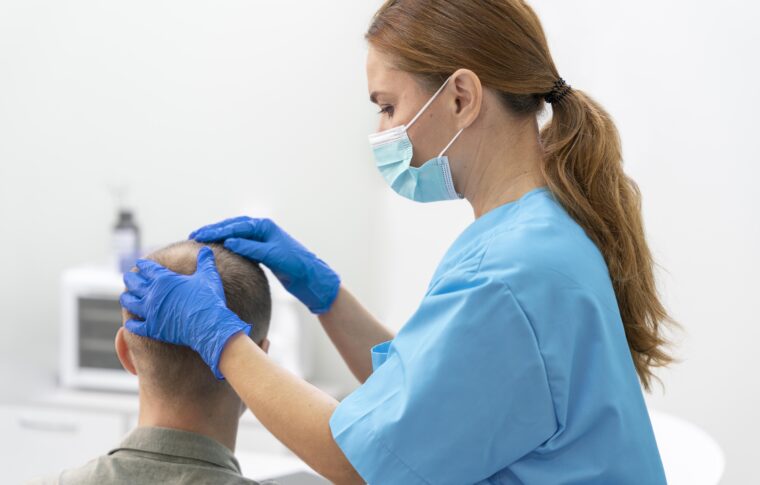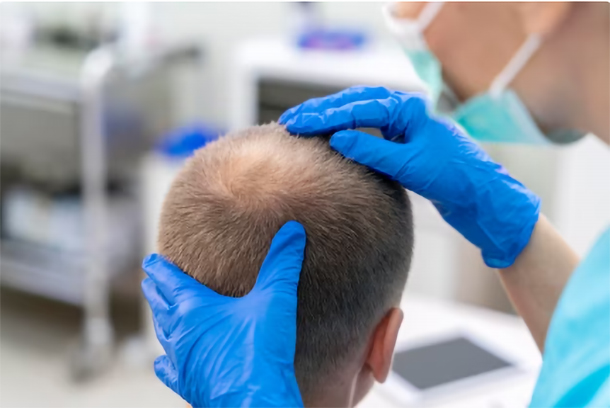Losing hair at a young age can be distressing for many individuals. While genetics is the most common cause of early hair loss (androgenetic alopecia), there are several other factors that can contribute to premature balding. Here are some top tips from experts to address going bald too young:
Seek Professional Advice: If you’re experiencing early hair loss, consult with a dermatologist or a hair restoration specialist. They can diagnose the cause of your hair loss and recommend appropriate treatments tailored to your specific needs.
Start Early: Addressing hair loss early can be beneficial. If you notice signs of thinning or receding hair, don’t delay seeking help. Early intervention may improve the effectiveness of treatments and slow down further hair loss.
Consider FDA-Approved Treatments: FDA-approved medications like minoxidil and finasteride have shown to be effective in slowing down hair loss and promoting hair regrowth in some individuals. These treatments are available in topical and oral forms, respectively, but require regular use to maintain results.
Explore Hair Transplantation: For individuals with significant hair loss, hair transplant surgery can be a viable option. It involves transplanting healthy hair follicles from the donor area (usually the back or sides of the scalp) to the balding areas.
Manage Stress: Chronic stress can contribute to hair loss. Practice stress-reducing techniques such as meditation, exercise, and mindfulness to help maintain overall well-being, including hair health.
Maintain a Healthy Lifestyle: Eat a balanced diet rich in nutrients, exercise regularly, get enough sleep, and avoid smoking and excessive alcohol consumption. A healthy lifestyle supports overall health, including hair health.
Avoid Harsh Hair Practices: Avoid tight hairstyles that pull on the hair (e.g., ponytails, braids) and minimize the use of harsh hair treatments (e.g., chemical relaxers, excessive heat styling) to prevent further damage to the hair.
Consider Low-Level Laser Therapy: Low-level laser therapy (LLLT) is a non-invasive treatment that uses light energy to stimulate hair follicles. It may help promote hair growth in some individuals.
Acceptance and Confidence: Embrace your appearance and focus on building confidence. Remember, hair loss does not define your worth or attractiveness. Many people find that self-acceptance and confidence can greatly improve their quality of life.
Support Groups and Counseling: Consider joining support groups or seeking counseling if hair loss affects your self-esteem and emotional well-being. Talking to others who are going through similar experiences can be empowering and comforting.
Remember, everyone’s hair loss journey is unique, and what works for one person may not work for another. A personalized approach with the guidance of experts is essential for managing early hair loss effectively.



